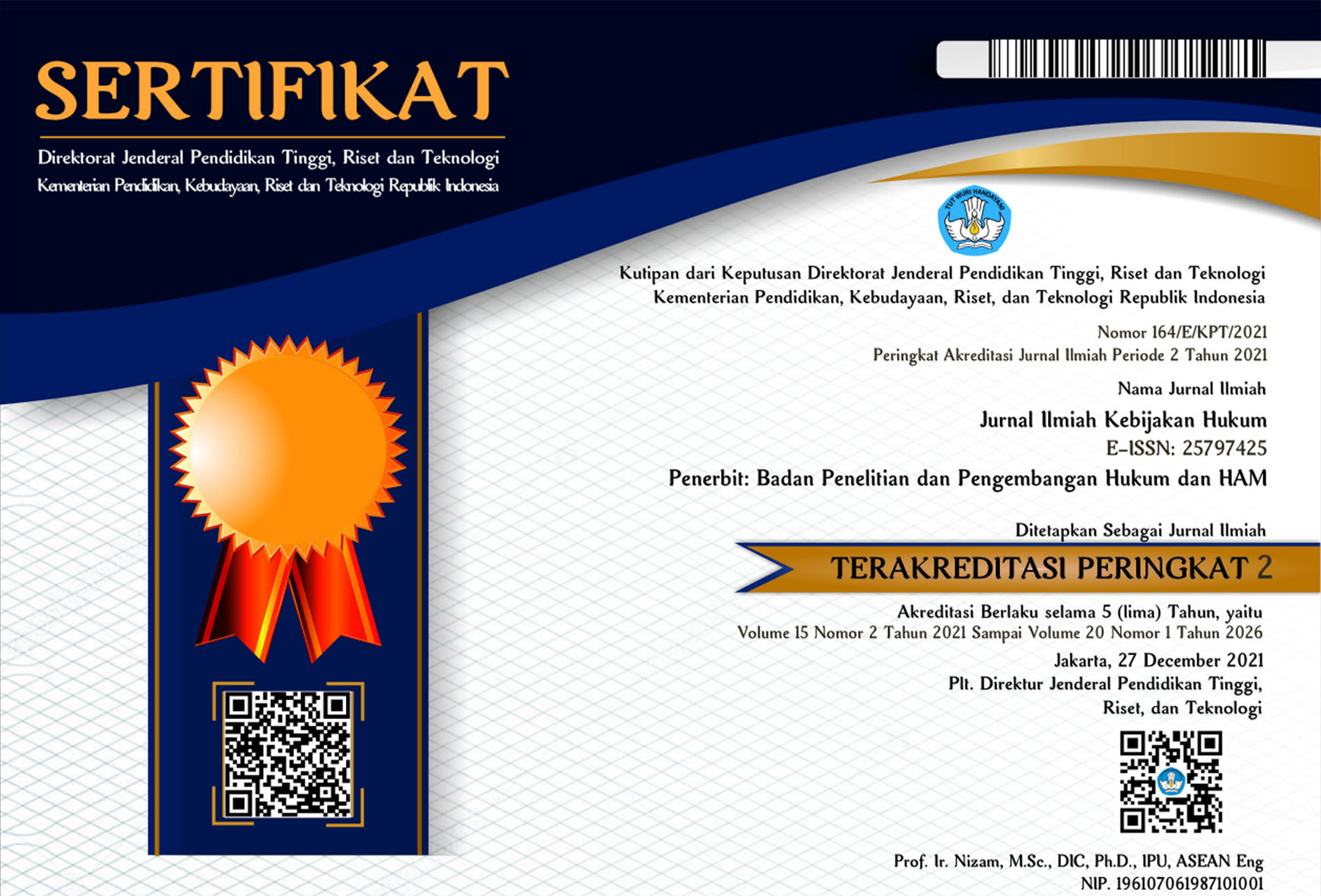DIVERSI DAN KEADILAN RESTORATIF DALAM PENYELESAIAN PERKARA TINDAK PIDANA ANAK DI INDONESIA (Diversion And Restorative Justice In Case Settlement Of Juvenile Justice System In Indonesia)
Abstract
Diversi dan Keadilan Restoratif telah diatur dalam UU No. 11 Tahun 2012 tentang Sistem Peradilan Pidana Anak (UU SPPA) lebih mengutamakan perdamaian dari pada proses hukum formal. Perubahan yang hakiki antara lain digunakannya pendekatan Keadilan Restoratif (Restorative Justice) melalui sistem diversi. UU SPPA mengatur mengenai kewajiban para penegak hukum mengupayakan diversi (pengalihan penyelesaian perkara anak dari proses peradilan ke proses di luar peradilan pidana) pada seluruh tahapan proses hukum. Keadilan Restoratif sebagai pelaksanaan diversi, diterbitkannya PP yang merupakan turunan dari UU SPPA Mahkamah Agung menerbitkan PERMA Nomor 4 Tahun 2014 tentang Pedoman Pelaksanaan Diversi dalam Sistem Peradilan Pidana Anak. Poin penting PERMA adalah hakim wajib menyelesaikan persoalan anak yang bermasalah dengan hukum (ABH) dengan cara diversi dan memuat tata cara pelaksanaan diversi yang menjadi pegangan Hakim dalam penyelesaian perkara pidana anak. Penelitian ini “difokuskan” pada, arti penting pendekatan Keadilan Restoratif dan eksistensi Diversi dan Keadilan Restoratif dalam penyelesaian perkara tindak pidana anak. Metode pendekatan yang digunakan adalah penelitian yuridis normatif, yang bersifat analisis kualitatif. Penelitian ini menunjukkan pentingnya pendekatan Keadilan Restoratif dan eksistensi diversi dalam penyelesaian perkara tindak pidana anak untuk mengubah paradigma penghukuman pidana menjadi pemulihan hubungan pelaku-korban-masyarakat.
Abstract
Diversion and restorative justice have been regulated in the Act Number 11, Year 2012 concerning the Juvenile Justice System that prioritizes peace than formal law process. An intrinsic change is used such as in restorative justice approach through diversion system. The Act of Juvenile Justice System rules about the responsibility of law enforcers attempt to a diversion of all law process stages. The restorative justice as diversion practice by issued government regulation that is a derivative from The Act of Juvenile Justice System, then the Supreme Court has issued the Supreme Court Regulation Number 4 Year 2014 concerning the Guidance of Diversion Administration in the Juvenile Justice System. The critical point of it, that is the judge has obligation to complete children against the law in diversion way and contains procedures for its administration that then it can be guidance for the judges to settle that cases. This research is focused on the importance of restorative justice approach and diversion existence in case settlement of juvenile justice system. This research is anormative juridical with qualitative analysis. It shows the importance of restorative justice approach and diversion existence in settlement of juvenile justice system to change criminal punishment paradigm turn into retrieval of the relationship among offender-victim and society.
Keywords
Full Text:
PDFArticle Metric
Abstract this article has been read : 17902 timesPDF file viewed/downloaded : 10754 times
DOI: http://dx.doi.org/10.30641/kebijakan.2016.V10.163-174
Refbacks
- There are currently no refbacks.
Copyright (c) 2017 Yul Ernis

This work is licensed under a Creative Commons Attribution-NonCommercial 4.0 International License.
Jurnal Ilmiah Kebijakan Hukum Indexed by :









